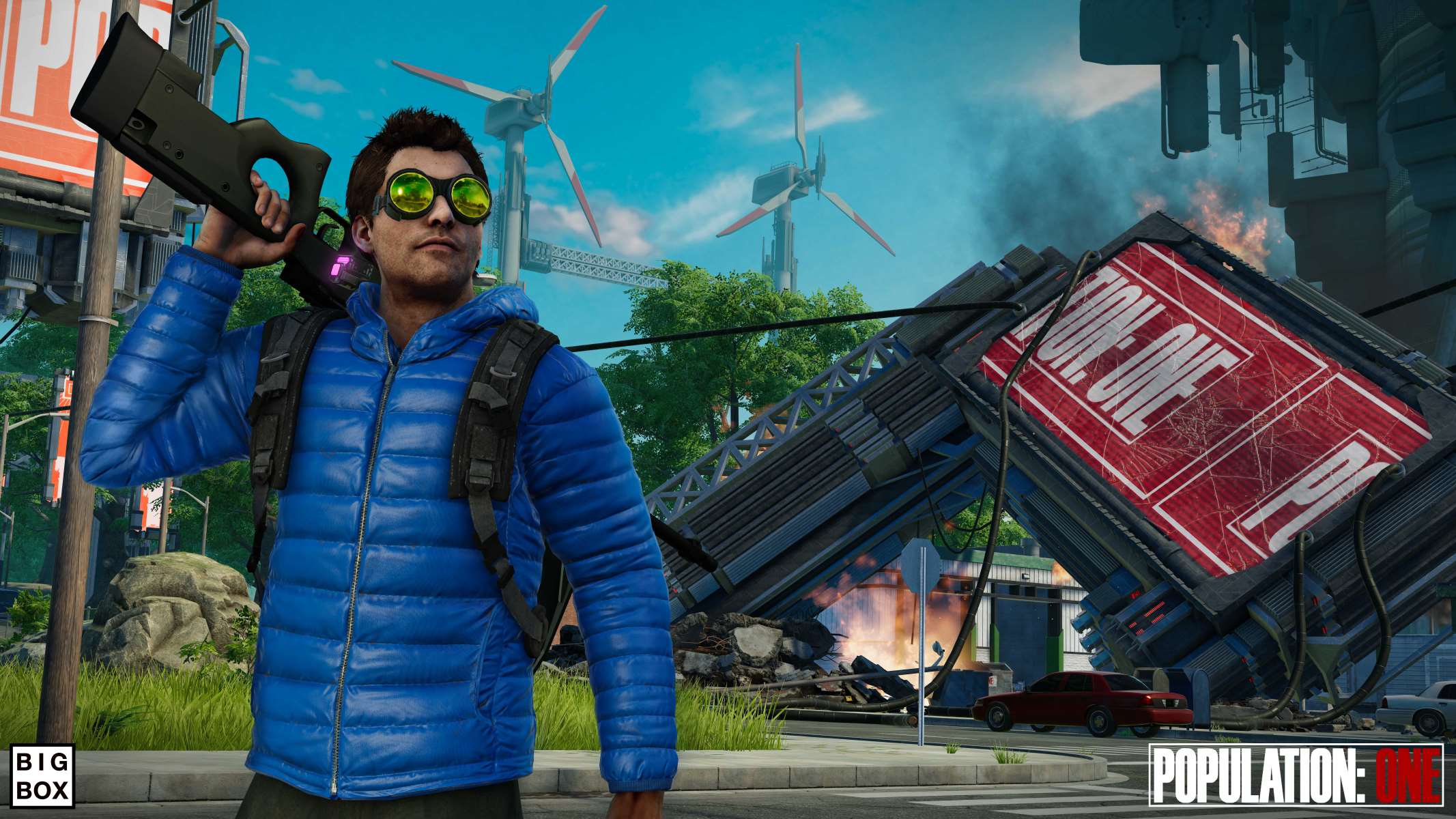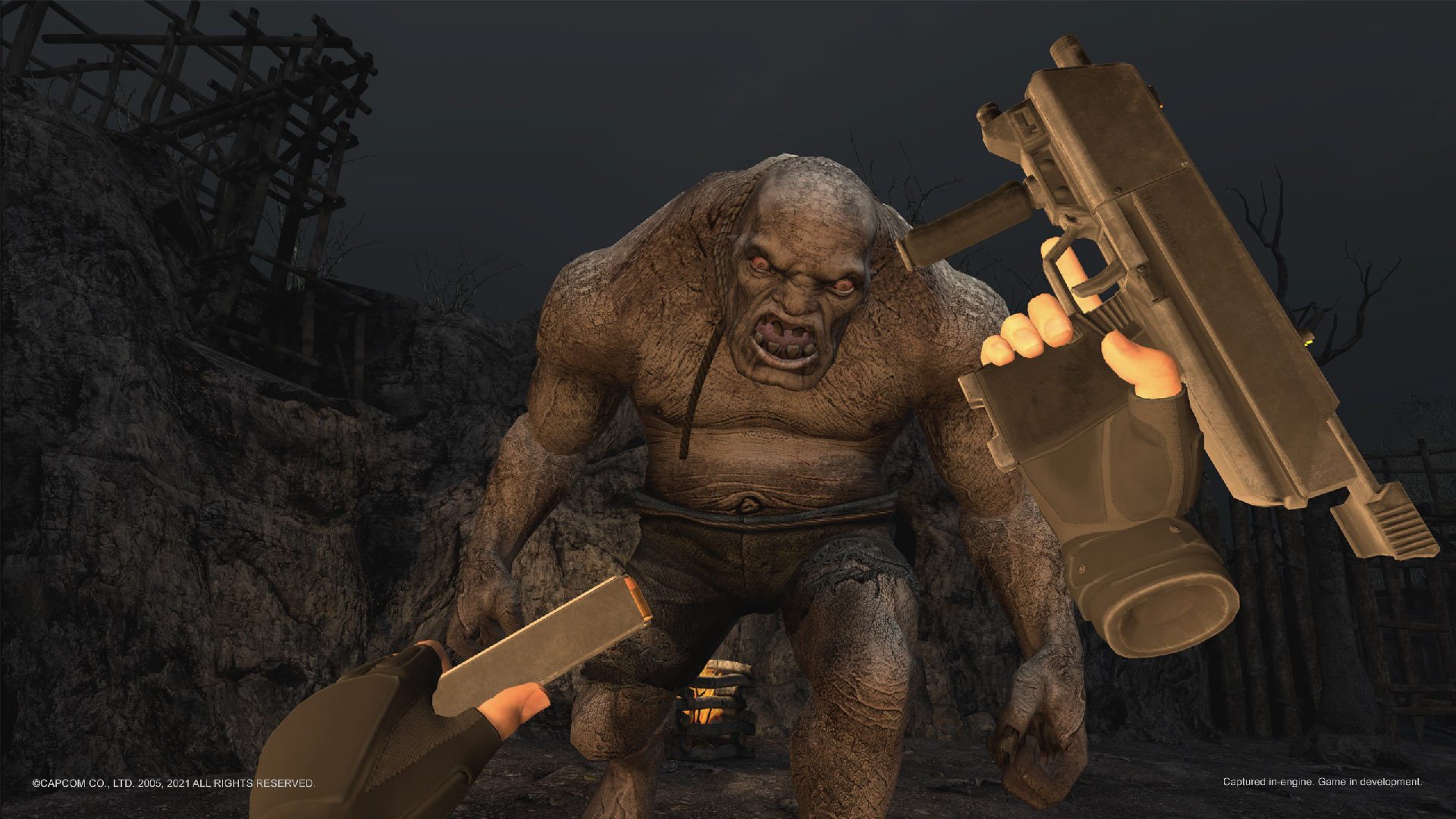BigBox VR – Known for Population: One, Acquired 2021

BigBox VR, developer of popular VR battle royale game Population: One (2020), was acquired by Meta in 2021. At the time, Meta said it was helping BigBox VR to “grow and accelerate their vision for POPULATION: ONE as a state-of-the-art VR social gaming experience, as well as pursue future projects.”
True to its word, Population: One has not only seen multiple expansions, including new maps, modes, and seasonal events, but it even went free-to-play in 2023, owing to the game’s popularity and extensive variety of purchasable in-game cosmetics. To this day, Population: One is still active and fresh, and remains cross-platform.
But the studio’s population of games remains just one. More than three years after the acquisition, the studio hasn’t announced any plans to work on new projects.
Post-acquisition Grade: B+
Within – Known for Supernatural, Acquired 2021*

Meta announced it was acquiring the studio Within in 2021 to build on its subscription-based VR fitness app Supernatural, with the goal of growing the VR fitness market and capitalize on the “new normal” of at-home fitness following the COVID-19 pandemic.
*The acquisition hit a pretty bumpy patch though when Meta encountered legal issues shortly thereafter, with the U.S. Federal Trade Commission taking Meta to court in 2022 to formally block the deal, citing the social media company’s supposed monopoly on the VR fitness space. Acquiring Within meant Meta would control both Beat Saber and Supernatural, two of VR’s most successful fitness and fitness-adjacent titles.
In February 2023, the acquisition was eventually finalized and Supernatural continued on to offer regular content updates while remaining a major player in VR fitness. Within has largely delivered on its promise to enhance Supernatural.
The studio has added new workouts, novel ‘knee strikes’, and—most recently—multiplayer. It has also given Supernatural a mixed reality mode for Quest 3, unlike Beat Saber.
But as with the other acquired studios we’ve talked about so far, there’s still no word on whether this talented studio will do anything but keep churning on Supernatural.
Post-acquisition Grade: B+
Camouflaj – Known for Iron Man VR, Acquired 2022

Meta acquired developer Camouflaj in 2022, which was known for the PSVR-exclusive Iron Man VR (2020). Touting the studio’s expertise in delivering high-quality immersive experiences, it was all but certain Camouflaj would bring the popular superhero game to Quest.
Since the acquisition, Camouflaj did just that, garnering the Iron Man VR port a respectable [4.3/5] user rating on the Horizon Store. With the port giving the studio a chance to get its bearing on the Quest platform, the studio set out to build a new flagship title for Quest 3, Batman: Arkham Shadow.
The game promises to be one Quest’s biggest games this year, coming exclusively to Quest 3 on October 22nd. Batman: Arkham Shadow is shaping up to be very promising, as our hands-on in August revealed that the studio has really honed the art of delivering a VR-native take on superhero action. This time the focus is on the tense melee combat and the gritty narrative that the Batman: Arkham games are known for.
Post-acquisition Grade: A
Twisted Pixel – Known for Wilson’s Heart, Acquired 2022

Meta acquired Twisted Pixel in 2022, a studio with significant VR experience: Wilson’s Heart (2017) and Defector (2019) on Rift, B-Team (2018) on Oculus Go, and Path of the Warrior (2019) on Quest. Unfortunately none of the titles were breakout hits as far as we know.
Though it wasn’t acquired until 2022, Twisted Pixel had a tight partnership with Meta even since the 2017 release of Wilson’s Heart, one the early titles for Oculus Touch. Considering the connection, the acquisition largely made sense, with Meta likely hoping to secure the studio’s ability to create narrative-heavy VR games moving forward.
However, two years from the acquisition, we’re no closer to knowing what Twisted Pixel has planned. The studio let slip in 2023 it was building something for VR in Unreal Engine, but it’s remained mum on details, which is a long time to stay quiet for a studio which last released a game in 2019.
Post-acquisition Grade: C
Armature Studio – Known for Resident Evil 4 VR, Acquired 2022

Armature Studio—which had worked on smaller VR games in years prior—was acquired in 2022 after the success of its Resident Evil 4 (2021) port to Quest 2. As a solid port and a well-known and well-loved IP, it became one of the highest-profile game releases of the Quest 2 era.
At the time of the acquisition, Meta didn’t mention specifically why it acquired Armature, but the studio’s long track record in successfully porting games to other platforms probably had something to do with it.
While Resident Evil 4 VR is basically the same game you could play on GameCube in 2005, Armature did an admirable job of overhauling the classic game for VR, which, despite some fairly dated gaming tropes, made it feel new again with the addition of high-res textures and a number of immersive, VR-native mechanics.
While impressive, Armature hasn’t released anything beyond Resident Evil 4 VR for Quest since, which was notably before the acquisition. Again, seemingly not utilizing the studio’s talent in a particularly efficient way.
Post-acquisition Grade: C-
– – — – –
While many of these studios continue to deliver content, outside of Batman: Arkham Shadow, we’re still largely waiting to see what’s next. And although you’d expect Meta to keep the exclusive games coming at a regular pace, there are a few factors at play that suggest Meta may actually be slowing down, rather than speeding up its push for VR content.
Firstly, the games industry as a whole is feeling the effects of the economic downturn, partially spurred by rapid post-COVID inflation and war-driven energy disruptions. Layoffs are a regular occurrence, and we don’t expect the headlines to change any time soon. Notably, Meta hasn’t acquired any VR studio since 2022.
Meanwhile, the cheap and cheerful Quest 3S ($300) is undoubtedly set to spark a renewed push by Meta to flesh out its mixed reality content library, and that’s still very much in its infancy. With relatively few ‘must play’ mixed reality games to show for it, new Quest 3S owners will at least be able to look forward to the backlog of Quest titles alongside the few Quest 3-only games currently in the pipeline.






